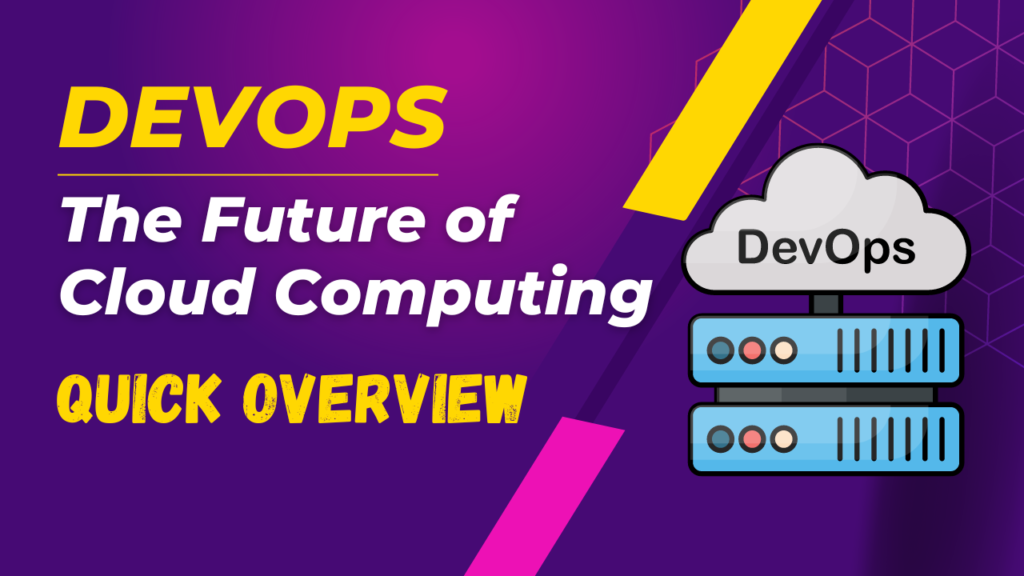In this post, we’re going to be talking about DevOps: The Future of Cloud Computing.
DevOps is a set of practices that combines software development (Dev) and IT operations (Ops) to shorten the systems development life cycle and provide continuous delivery with high quality. Cloud Computing is a way to deliver computing services—including servers, storage, databases, networking, software, analytics, and intelligence—over the Internet (“the cloud”).
By implementing DevOps and Cloud Computing, organizations can improve their agility, efficiency, and security. They can also reduce costs and improve customer satisfaction.
What is DevOps?
DevOps is a relatively new term, but the practice of combining Dev and Ops has been around for a long time. In the early days of computing, Dev and Ops were two separate departments. Dev was responsible for writing code, and Ops was responsible for deploying and maintaining that code.
As software became more complex, it became increasingly difficult for Dev and Ops to work independently. This led to a number of problems, including:
- Long development cycles
- Frequent errors
- Poor security
- High costs
DevOps was created to address these problems. By bringing Dev and Ops together, DevOps teams can shorten development cycles, improve quality, and reduce costs.
How does DevOps work?
DevOps is a set of practices that can be implemented in a variety of ways. However, there are some common principles that all DevOps teams follow.
- Culture: DevOps is more than just a set of tools and processes. It’s also a culture that emphasizes collaboration, communication, and continuous learning.
- Automation: DevOps teams use automation to speed up the development and deployment process. This includes automating tasks such as code testing, deployment, and monitoring.
- Continuous integration and continuous delivery (CI/CD): CI/CD is a practice that involves continuously integrating code changes and continuously delivering those changes to production. This helps to ensure that code is always in a working state and that changes are made in a safe and controlled way.
Benefits of DevOps
There are many benefits to implementing DevOps, including:
- Shorter development cycles: DevOps teams can shorten development cycles by automating tasks and by working more closely with Ops. This can lead to faster time to market and increased customer satisfaction.
- Improved quality: DevOps teams can improve quality by automating testing and by having a culture of continuous learning. This can lead to fewer errors and improved customer satisfaction.
- Reduced costs: DevOps teams can reduce costs by automating tasks and by working more efficiently. This can lead to lower IT costs and increased profits.
- Improved security: DevOps teams can improve security by automating security testing and by having a culture of continuous learning. This can lead to a more secure environment and reduced risk.
The future of DevOps and Cloud Computing
DevOps and Cloud Computing are two of the most important trends in IT today. As these technologies continue to evolve, we can expect to see even more benefits for organizations that implement them.
In the future, we can expect to see:
- Even shorter development cycles: DevOps teams will continue to find ways to automate tasks and to work more closely with Ops. This will lead to even shorter development cycles and increased customer satisfaction.
- Improved quality and security: DevOps teams will continue to find ways to automate testing and to have a culture of continuous learning. This will lead to improved quality and security for organizations that implement DevOps.
- Reduced costs: DevOps teams will continue to find ways to reduce costs by automating tasks and by working more efficiently. This will lead to lower IT costs and increased profits for organizations that implement DevOps.
If you’re interested in learning more about DevOps and Cloud Computing, I recommend checking out the following resources:
- DevOps.com: This website provides a comprehensive overview of DevOps.
- The Cloud Academy: This website offers a variety of courses on DevOps and Cloud Computing.
- A Cloud Guru: This website offers a variety of courses on DevOps and Cloud Computing.
I hope this post has helped you learn more about DevOps and Cloud Computing. If you have any questions, please leave a comment below. Thanks for reading!
